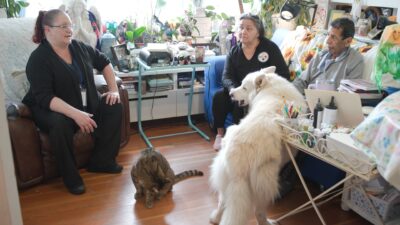Death is shocking. Although we may know that a loved one is seriously ill or close to dying, the finality of death can feel unreal. Death is a harsh reality to grasp. It can feel like a disturbing dream or a nightmare. We wish we could wake up and be free of this unwanted reality, but we cannot.
Shock and disbelief are natural reactions to any kind of loss, or disturbing diagnosis, illness, accident, or sudden change in circumstances. Our numbness temporarily protects us from feeling the full blast of our pain. Outwardly we may appear unfazed, as the reality has not yet sunk in.
Detached from the actuality of our loss, at first we may be able to function pretty well. We may easily call the newspaper about the obituary or notify friends and family of the death. It can be confusing to not yet feel the full impact of our sorrow right away.
Death is hard to digest. Thus we may feel shocked by the reality many times in the days that follow our loss before we actually accept it. Painful news like this may hit us in vulnerable times, such as when we are about to fall asleep or first awaken. We may stay awake at night obsessing about our dead loved one or about how we are going to survive the days ahead. We may fall asleep relatively easily only to be shocked awake remembering. Rediscovering our loss many times over makes us feel a little “crazy.” Yet, this how we naturally process grief.
During the day, we may get involved in tasks and temporarily forget our loss—until something reminds us. Then we are jolted again feeling disbelief and distress. Just being asked, “How are you?” can catapult us into remembering again that our loved one is gone. Even though it makes us feel off-balance, this is how all we process painful experiences, and is part of how we heal.
In time, as we accept the truth of our loss, we will feel less and less shocked by it. Most of all we need to remember that even though the grieving process is uncomfortable and that loss itself is shocking, we can and will eventually be able to include our loss and recover from the pain. We will always remember our lost loved ones, but we need not grieve their absence forever. Instead we can live a good life in their honor.
By Judy Tatelbaum, MSW, LCSW, psychotherapist, public speaker, and author.


